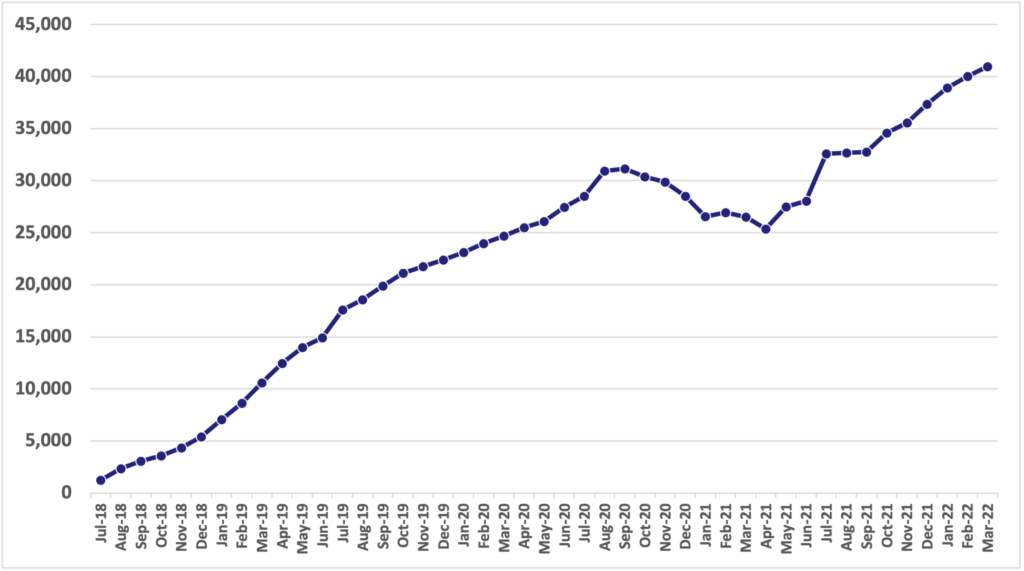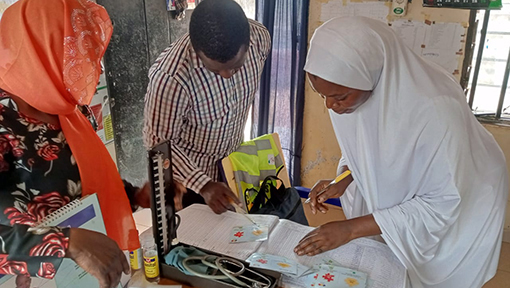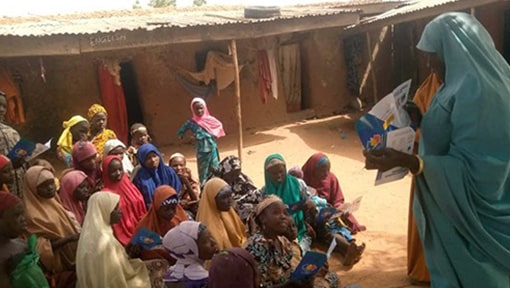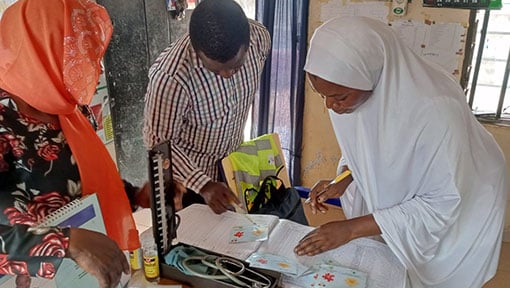New TCI Publication Shows Impact of Collaboration and Coordination in Plateau State, Nigeria
Contributors: Dr Philemon Mamza Yohanna, Lisa Mwaikambo, Lekan Ajijola and Olusegun Akinola
 The Challenge Initiative (TCI) has just published a new Tales of Impact from Plateau State, Nigeria, that shows the power of collaboration and coordination in driving impact in family planning indicators.
The Challenge Initiative (TCI) has just published a new Tales of Impact from Plateau State, Nigeria, that shows the power of collaboration and coordination in driving impact in family planning indicators.
According to the publication, TCI has thus far contributed to nearly 41,000 additional family planning clients since the local government began engaging with TCI in July 2018. In addition, long-acting reversible contraceptive (LARC) client volume increased by 120% (19,398) when comparing the latest period (March 2022) with the baseline period. This impact was largely driven by the political and health system leadership and supported by the community in Plateau state. Overall, TCI has fostered better collaboration and communication between all family planning stakeholders.
By employing a systems-based approach, TCI provided technical assistance to the state to align high-impact family planning interventions (HIIs) with the state’s annual operational plan (AOP). TCI also promoted inclusive and transparent workplanning to enable the state government to not only lead but also leverage its resources.
This included establishing and/or reinstituting additional coordinating platforms, such as the Partners Coordination Platform (PCP), an adolescent health technical working group (TWG), Life Planning for Adolescents and Youth Ambassadors (LPAY), a family planning TWG, monitoring and evaluation TWG, State Health Promotion Team, State Emergency Maternity and Child Health Intervention Centers (SEMCHIC) and The Community Health Influencers, Promoters and Services (CHIPS) Program to more effectively drive implementation and sustain the impact of the HIIs.
Dr. Miapkwap Livinus, Executive Secretary of the Plateau State Health Care Development Board, explained how engagement with TCI was unique from the beginning:
When I came on board, there were some partners on ground doing whatever they wanted to do, but in this case, we are sitting down together to define our parts, based on what we have on ground, with the workplan of the state and the annual operational plan (AOP).”
In addition, Plateau’s newfound commitment towards family planning across stakeholders led to improved financing for family planning programming. Cumulatively, Plateau state has released an unprecedented sum of N204,510,679 (USD $480,000) for family planning activities from July 2018 to March 2022.
Dr. Livinus went on to explain how TCI’s 72-hour clinic makeover was a game-changer in activating the community to bring its talents and resources to the table to improve the health facilities and, in turn, the health of the community. He shared:
When we did the 72-hour makeovers, …it was quite amazing because when I went there, visiting intermittently to do spot checks, they were working there until 11pm into the night. The commitment was something. Like, at one of the primary health centers, the community was bringing food to the people who were doing the 72-hour makeover because the community saw it as our team, the Plateau community team, not the TCI or state team.”
Even COVID-19 did not slow down efforts by community members or government stakeholders to continue to raise awareness and promote quality family planning services. With coaching support from TCI, Mrs. Hannatu Dung, the State Reproductive Health Coordinator, and Mrs. Rahila Telfim, the Family Planning Coordinator, used both Zoom and WhatsApp to hold weekly meetings during the pandemic to continue regular coaching of local government managers and frontline health workers on family planning commodities and logistics management systems. Mrs. Dung shared:
Working with TCI’s business unusual model has been very impactful. The use and uptake of sexual and reproductive health services drastically changed the reproductive health landscape in Plateau state positively, with coaching on leveraging multiple funding sources, implementation of the HIIs, mentoring and coaching using on-the-job training, integration of adolescents and young people into state structures.”
Their ability to continue reaching and coaching health workers on family planning commodity management using virtual platforms mitigated and ensured no commodity stockouts during the lockdown. Using the platforms, the coordinators also ensured execution of the HIIs and strategies for integrating family planning with COVID-19 management/intervention across primary health care centers in the state. The coordinators reached a total of about 684 health workers across the 17 local government areas in Plateau state through these virtual weekly coaching sessions.
As a result of Plateau state’s success, Mrs. Dung introduced TCI’s service delivery HIIs and their benefits to stakeholders and other partners attending a workshop on the development of the Quality-of-Care guidelines. This has led to the incorporation of some of these interventions into the guidelines. Mrs. Dung along with Dr. Livinus have become global ambassadors for TCI, encouraging the replication of the model near and far.

Additional family planning clients in Plateau State, Nigeria from July 2018 to March 2022. TCI arrives at additional family planning clients after further adjusting client volume data for discontinuation rates of LARCs and looking at the entire period of implementation (rather than just the 12-month period in client volume).






